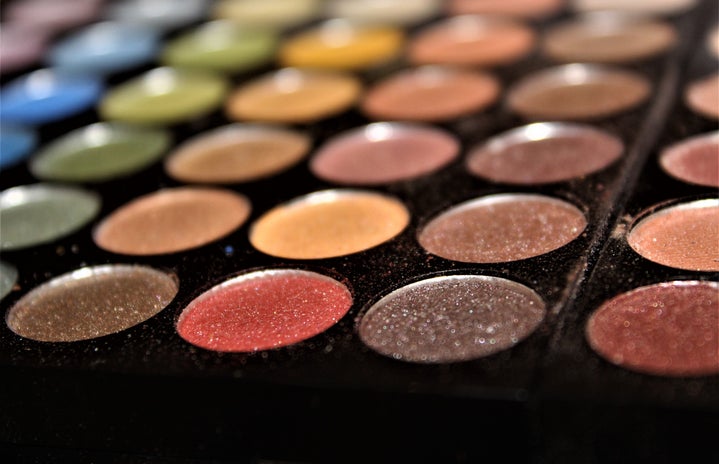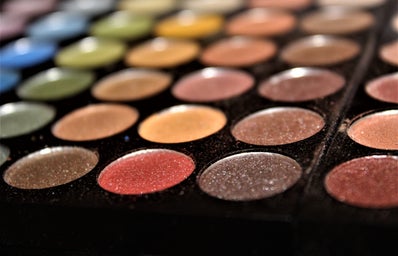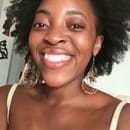Black women’s hair has been forced to the outskirts in western, Eurocentric societies for decades. The hair of Black girls and women is subjugated to a distinct form of shame deriving from ideologies rooted in misogynoir. This shame is almost always harbored by spectators threatened by the announcement of a Black girl’s rebellion against the known and understood. It’s pushed onto many of us as young girls, following us as trauma-based habits of self-deconstruction in our adulthood.
As a young Black woman, I cannot count how many times my right to exist freely and fully was questioned. This past month, especially, has been extremely difficult and scarring.
After a decade of living in the States, I finally came to terms with my relationship with my hair as a love, growing and evolving constantly. But, after moving back to Canada, I experienced a culture shock that completely uprooted my connection to my hair as well as my identity as a Black woman. I felt a suffocating suppression of my self-expression that exposed itself through insecurities; supported by looks of disgust, racist remarks, and unsolicited questions and comments — calling me Raggedy Ann or comparing my appearance to rapper Lil Yatchy. These micro and macro-aggressions were all brought on by strangers, students, or staff members who felt obligated to dissect and redefine me under their own terms.
I remember one particular day spent with my sister, Ayanda, walking around a mall cafeteria. As we searched for a place to eat, a woman approached my sister and asked to take a picture with her. There was no outrageous phenomenon in this woman’s action. Her request was not the first and it would not be the last. I knew exactly what was going on. Ayanda and I have always seemed to be a call for commodification. As if we are some exotic, mysterious creature in a public exhibit. People feel entitled to poke, prod, and question our meanings and our realities at any moment. I shook my head quickly, telling my sister, no. She was not going to allow this woman to present her as a spectacle under the lens of bigotry and ignorance. Ayanda said no, explained that she was not comfortable with cameras — though, an explanation should not have been required at all. And yet, her initial denial was not enough for this woman, because the concept of a Black woman’s right to say no when being asked to split herself open for the world to see was incomprehensible to her. After questioning my sister again, and Ayanda’s repetition of the same answer, she asked why?
Why was it not okay to ask a young woman — who you do not know and have made no effort to get to know and have done nothing to beyond staring — to take a picture with you? Why is it not okay to ask to take a picture with her as if she is an exciting and interesting moment to share later with friends as if her humanity — her choice — is not given equal weight to your own?
At that moment I wanted to scream.
But, as two young Black women minding their own business in a mall food court, our existences are innately threatening. To even raise my voice after this woman’s continuous harassment of my sister was not possible. For we would have then been the ghetto, loud, angry Black women that everyone expected us to be.
But see, I was angry, I wanted to be loud, and I see no problem with being ghetto but the combination of these existences mixed with our Black womanhood was a prison. Ayanda and I wished not to be encased within that prison at that moment and so we calmly walked away and moved on as many Black girls in our shoes had done before.
And later, when my sister would question if it was mean of her to deny this woman’s request, I would be reminded of the standard of unquestioned access to Black womanhood that society has been granted. Access to our spaces of comfort, of safety, of vulnerability. Access to our lives, our mental, physical, and emotional health. Access to our humanity.
As a young girl, I looked at hair as an entry point into acceptance. I thought of my hair as something I could mold into a passive, endangered species searching for resolution in the bleached palms of the world’s hands. And yet, the very kink, coarse, unruly, freedom interlocked in each crimp and curl was the very liberation I craved but could not detangle. Swept into the idea of Western civility, passivity, and simplicity as the entity of beauty, goodness, and wholeness, I — the antithesis — struggled to set myself free.
Imagine being raised as a critique of your own existence. Everything you do and anything you strive to become always being observed as an afterthought to the “otherness” applied to your name. This was my Black girlhood. Instead of my voice, body, or mind belonging to myself, each aspect existed as a statement of my strangeness. The oddness of my figure, of my tone, of my skin, of my thoughts, of my hair. Though our parents attempted to preserve the confidence and self-worth of their daughters, they could not barricade us from the world’s war on a Black Girl’s self-expression.
So, my mother prepared me for the rage.
There remains a distinct form of alienation that comes with being a Black woman. Packaged together with the assumption of strength and predisposition to pain, neglect, and abuse. I am always angry, and my hair is always loud. It screams in the ways I cannot. The depth of blood orange hues and fiery reds burn for me.
There’s something magical about hair that grows towards the sky. Hair that builds upon itself, domestic in the warmth of my blackness and livid by any attempt to tame our chaos. Hair that can hibernate within box braids, Senegalese twists, yarn locs, and cornrows. Unblemished by vivid, bright, experimental hues worn as her own skin. I find my sisters in my hair, my mother, my aunties, my cousins, my fellow black girls. I see them all in every strand and wear their kinks as my shield.
On days when I fall apart, my hair strings me together. The glow of its metallic tone cradling my dark girl blues. Sometimes I hide within it. It has become a shelter — a stained-glass prism raw with coconut oil and bathed in shea butter. On hot, sweaty nights, dancing with myself in solace mirrors, its magnetic magenta flare flies me to another universe. Where I can be the Queen of Kanekalon across seas of pastels, royal blues, and deep-olive greens. During dreamy afternoons, when I wish to dislocate my body from the unexceptional, we dance like wind through time’s lonesome into our satin cocoons. We protect each other, feed each other.
And on days when I curse her name, wish to flatten her into dimensionless waves, slim enough to fill the warped gaze of the perfect girl, on days when she crumbles in upon herself, slits her ends upwards until the root, snaps, tears, fails and decieves me, I still won’t abandon her. Because we have become one. I am my hair, my hair is me, we are a growing sky filled with all the colors and possibilities of a Blackened universe and I won’t ever run from myself again the way I had been taught to as a young girl.


